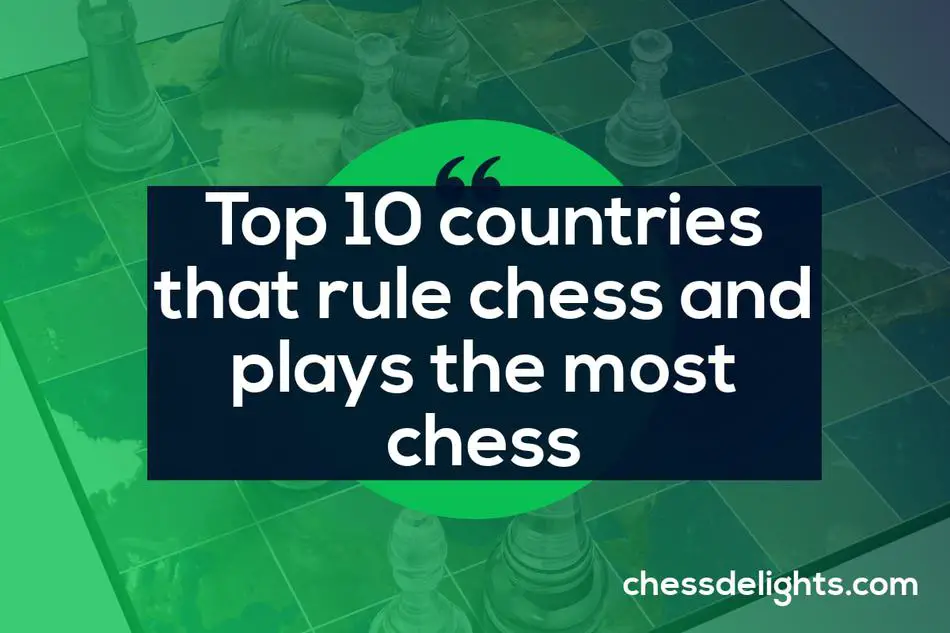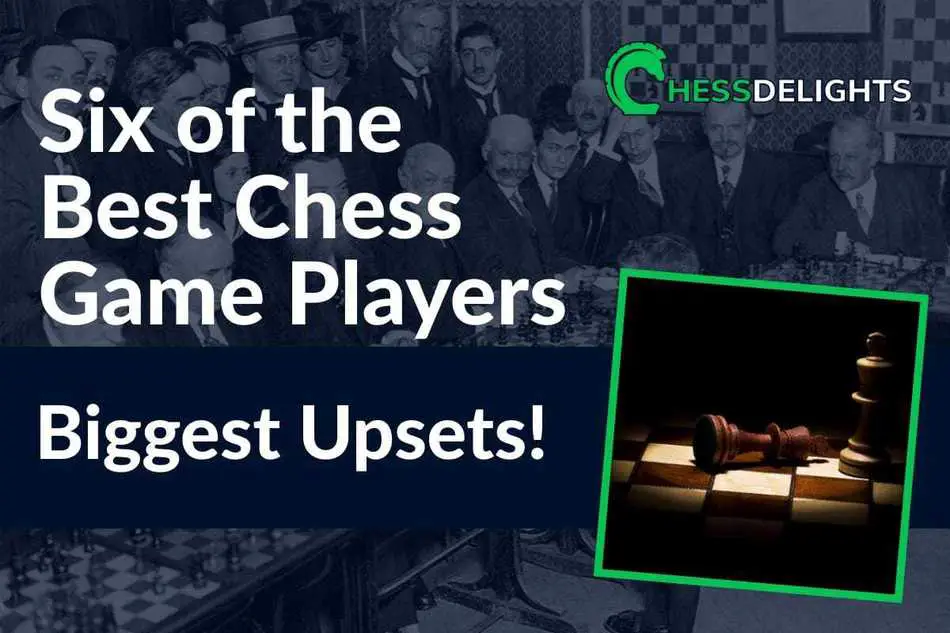I always knew that playing chess has some specific benefits in our daily lives. That's why you will find medical professionals recommending chess as some form of therapy for their patients.
Although some claims are still not proven by scientific studies, playing chess will somehow become part of specific clinical tests to improve our well-being.
In this blog post, I’ve researched some of the exciting benefits of playing chess, and some of them I have experienced the benefits myself.
Here are the 20 interesting benefits of playing chess
- Playing chess helps prevent memory loss.
I used to take vitamins for memory enhancement when I was studying because they say it will improve my memory and prevent brain deterioration. There’s some truth to that with dementia cases, but not everyone takes vitamins for the brain.
That’s why some experts prescribe playing chess, especially for older people. Chess activity is one way to boost the brain to think and force it to memorize certain chess moves or openings. Playing chess will help sharpen your mind because it stimulates our brain and keeps it engaged while playing.
One of the diseases that are prevalent in older people is Alzheimer's disease. An article I read in chessbase.com says, “Every 68 seconds someone in the US develops Alzheimer's disease. 14.5 million caregivers provided more than 17.5 billion hours of unpaid care, and the total cost of Alzheimer's is projected to balloon from $203 billion in 2013 to $1.2 trillion by 2050.”
If you want to learn more, here is an article on how chess can become an Alzheimer's disease prevention.
Suppose you are not familiar with Alzheimer's disease. In that case, it is a degenerative disease that attacks its first phase, some functions that depend on the cerebral cortex, such as memory and concentration.
Memory and concentration both develop a lot with chess practice; we can safely say that playing chess can help prevent memory loss.
2. It can help you become both a left-brained and a right-brained person.
Chess players are considered left-brained people because of all the analytical, move calculations, and memorizing sequences involved in this beautiful strategy game.
We all know that there are two parts of the brain. It was explained to us that some people are either logical thinkers or a creative person. Wouldn’t it be nice to become both and now know that an individual can become left-brained and right-brained with playing chess?
Because until recently, it was thought that this game only enhanced the activities of the left hemisphere of the brain, responsible for logic and rationality, but more and more data suggest that the functions of creativity are also activated in the right hemisphere, which includes intuition and image recognition when playing chess.
If you want to learn more, here is an article about the left and right brain hemispheres.
3. It can help you improve reading comprehension
If you have been playing chess for quite some time now and have purchased some chess books to read, then you may have noticed that you have improved your reading comprehension.
When I decided to re-learn chess, I knew I needed to learn the basics again and at a much faster pace. So, I study books and play chess simultaneously. Doing it in this pattern made me realize that my reading comprehension has improved because I have to understand and interpret the words simultaneously.
A study conducted that “fifth-graders who played chess on average scored 4.3 points higher in reading and 6.4 points higher on math during state testing”. Read the full article here!
Improving reading comprehension is another of the main benefits of playing chess. Because it is a game where attention and concentration on the part of the players are essentials, these abilities' permanent exercise helps strengthen reading ability.
4. Playing chess can help improve our brain cells.
When you play chess and study this game, you will be introduced to many chess combinations, problems, and solutions. To process all of this, our brain cells transmit and receive information, which can also be described as neurotransmission.
This process includes the creation of dendrites…
In addition to the creation of dendrites, neural structures responsible for the perception of stimuli in the brain, playing chess makes us more skilled in our mental responses to the challenges that are presented to us; this implies that the complex biochemical process occurs within the brain of synaptic connections is becoming more agile and efficient.
5. It can serve as a form of therapy and rehabilitation.
In rehabilitation facilities, patients may require specific therapy that does not require too much physical activity; instead, they need more mental workout.
That is why we may often see patients playing chess as part of their therapy.
Chess is highly recommended in degenerative neuronal pathologies, in cases of cerebral accidents, and even in applied therapy for mental disorders such as schizophrenia and learning disorders such as autism.
6. It can improve a person’s IQ
I used to teach my classmates when I was in primary school about chess. I taught them the moves and some openings, and I also let them borrow my book. I know for a fact that learning to play chess can improve a person’s IQ because that classmate of mine started getting good grades, especially on our math subject, which he was struggling with before.
Different studies have shown that after a time of systematically playing chess, a person can raise their IQ, helping them to improve response capacity in solving problems.
Read the full article about chess and the limits of intelligence.
It has been shown how young people and children who frequently practice these sports show better grades at school age.
7. It helps to improve attention, concentration, and memory significantly.
As we have previously mentioned, playing chess can be more of memorizing a series of moves, focus or concentration, and everything else that involves our brain functionality.
Many psychologists and experts in cognitive areas agree that skills that require memory and concentration are enhanced by playing chess. Due to the diversity of alternatives for each move during a chess game and the relatively short time to choose the best answer, memory is essential for the chess player.
I believe this statement to be true because I can pay attention to precise details of my current job, and even before I was studying in college – learning chess helped with my concentration.
8. It helps stimulate your capacity for analysis and synthesis.
This is presented as one of the most obvious benefits. Playing chess encourages concentration: the ability to focus on what is happening on the board and withdraw from everything else.
This ancient game is good training to keep your head on a task, analyze the multiple possibilities, and develop critical thinking, that is, a synthesis in search of the most appropriate movement on each occasion.
9. It helps in problem-solving and decision making under pressure.
This is quite true for me, especially when I was studying in college; the skills that I acquired learning how to play chess helped me solve problems and make fewer mistakes with critical decisions in my life.
Chess generates responsibility in decision-making because it refers to taking charge of each play that it makes. During the game, the player faces different problems for which he must define and apply a solution strategy. As time is a limiting factor in chess games, essential decisions must also be made about the strategy to follow under time pressure.
10. Playing chess develops creativity and imagination.
Since learning how to play chess, I have always claimed that my creativity was directly influenced by learning this game. You may experience making a mistake with your move, and you have no other choice but to be creative and find your way out of that blunder.
In chess, it is not enough to respond to the opponent's moves or try to follow previously studied or practiced patterns of movements to achieve clear advantages over the opponent; the chess player must imagine positions other than the one present on the board and define strategies that allow you to reach them.
11. It develops a person’s acceptance of rules.
Sometimes playing chess will help a person learn how to follow the rules because if you start playing in tournaments and you might have missed or disobeyed a rule in chess. An arbiter will penalize you, and you have no choice but to accept the consequences of your actions.
In chess, it is required to follow a series of rules whose non-compliance is not acceptable and is penalized; in the case of children, they cannot blame anyone for their mistakes; their abilities and actions determine their performance.
12. It develops our abstract reasoning.
I joined an online platform to study chess again, and one of the skills I want to enhance is pattern recognition. Playing chess is not just memorizing specific openings, but you need to develop abstract reasoning. Learn to recognize patterns in chess, and you will have more fun playing this game.
Chess puts into practice developing the ability to plan and design strategies to achieve a goal, evaluate the relationships between figures, and anticipate the opponent's movements.
13. Playing chess promotes values in children.
One of the reasons I started this website is teaching my kids how to play this game. I wanted them to learn all these benefits and, at the same time, become good at chess.
Chess can teach children the values of hard work, objectivity, respect, tolerance, and commitment. The practice of these values even affects the reduction of behavior problems. And it is that what chess has to teach us is not limited to the intellectual aspect, but extends to the human and social.
14. It is entertaining and encourages socialization.
Actually, in our family, we play chess for entertainment purposes, we do have some potluck sometimes, and if we have some visitors with kids, we encourage them to play chess instead.
Beyond all these benefits, it is clear that chess is still a game, and, as such, it also has the positive characteristics of any recreational activity. It is entertaining and allows you to interact with other people, regardless of age or nationality (you don't have to speak the same language).
15. Playing chess develops self-esteem and confidence.
Winning and losing is normal in chess; even the best player in chess loses, you need to develop confidence even if you are losing. That is the most crucial thing chess taught me; you cannot keep thinking of the past games where you fail.
You can develop self-esteem and confidence by playing chess.
The effort to achieve what we want is gratified, which feeds these important areas of our psyche. By winning some games, this builds confidence and increases self-esteem.
16. Playing chess develops one’s empathy.
Grandmaster plays chess as if they already know what their opponent will move, 5-6 moves ahead. That is how they play. It's like developing empathy for your opponent’s move.
It leads you to understand, to stand in the opponent's place during the game. It is essential to consider that there is the “other” who makes plays just like you. This will help you understand the opponent's strategy and anticipate their actions, which must be observed to respond appropriately and win the game.
17. It helps children understand the consequences of their actions.
In addition to the benefits of chess for adult people, some are specific to children's cases. In particular, it helps them to bear the consequences of their actions. It is a game in which chance does not intervene:
- All the pieces are always in sight.
- The movements depend on the players.
- There is no external element that can affect the development of the game.
This is why I love teaching chess to my kids because we help them understand the consequences of their actions while developing their critical thinking and learning this excellent game of chess.
18. Playing chess improves mathematical skills.
I graduated with an engineering degree, and I guess learning chess helped me overcome problem-solving in my math subjects too! 🙂
Some experts say that this is one of the benefits of playing chess that is most emphasized. Chess has been found to improve math skills moderately as there are common elements of quantitative relationships and problem-solving.
19. It teaches planning and forecasting.
Chess helped me learn how to plan my activities, especially at work. I have a pre-planned sheet where I forecast different issues that may occur.
Strategy games are a great way to develop the prefrontal cortex, which is responsible for planning and anticipating events, self-control, and good judgment.
20. Playing chess does not discriminate.
You can play chess with anyone, and today we can play with anybody online in different countries. People with different cultures and we don’t care about the color of the skin. Chess seems to have a universal language, and it is a great way to develop camaraderie with other people.
We cannot ignore that chess is one of the oldest games globally, played by many people day after day. This practice unites people of different cultures, ages, and backgrounds around their shared passion for this game.
Wrapping Up
Just a disclaimer, please do not take any of the medical-sounding advice as professional advice. I would recommend that you always consult your trusted practitioners first before relying on any ideas above.
That said, I want to reiterate the top 20 benefits of playing chess:
1. Playing chess helps prevent memory loss.
2. It can help you become both a left-brained and a right-brained person.
3. It can help you improve reading comprehension.
4. Playing chess can help improve our brain cells.
5. It can serve as a form of therapy and rehabilitation.
6. It can improve a person’s IQ.
7. It helps to improve attention, concentration, and memory significantly.
8. It helps stimulate your capacity for analysis and synthesis.
9. It helps in problem-solving and decision making under pressure.
10. Playing chess develops creativity and imagination.
11. It develops a person’s acceptance of rules.
12. It develops our abstract reasoning.
13. Playing chess promotes values in children.
14. It is entertaining and encourages socialization.
15. Playing chess develops self-esteem and confidence.
16. Playing chess develops one’s empathy.
17. It helps children understand the consequences of their actions.
18. Playing chess improves mathematical skills.
19. It teaches planning and forecasting.
20. Playing chess does not discriminate.
One more thing, although I’m a bit biased about chess benefits, I wanted to remind you that prolong sitting playing chess or any other form of activity that involves sitting for a very long time is not good.
Do everything I mentioned in this article moderately and make your health your priority; thanks for your time for reading. I appreciate you sharing this article with your friends who might be interested! Enjoy learning chess!







